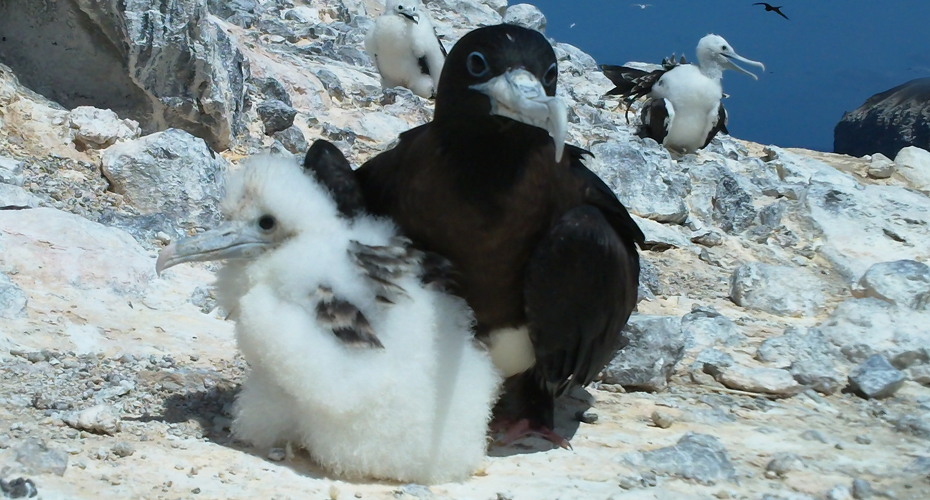Masters applications for 2023 entry are now closed.
Applications for September 2024 will open on Monday 25 September. Applications are now open for programmes with a January 2024 start. View our programmes »
| UCAS code |
1234 |
| Duration |
1 year full time
2 years part time |
| Entry year |
2024 |
| Campus |
Penryn Campus
|
| Discipline |
Ecology and Conservation
|
| Contact |
|
Overview
- We host one of the largest groups of marine vertebrate ecologists in the UK, with world-leading experts working on sharks, marine turtles, seabirds and marine mammals in the UK and around the world
- Opportunities to undertake research projects within world-leading research teams in collaboration with NGOs and government bodies in the UK and overseas
- Extensive skills-based field learning within the UK
- Gain transferable skills in marine vertebrate ecology and conservation
- Study on the beautiful Cornish coastline with a wealth of coastal and marine biodiversity
9th in the world for Ecology
90% of our Biological Sciences research is internationally excellent
Top 20 in the UK for world-leading research in Biological Sciences
Entry requirements
Normally a 2:1 degree of 65% or above in a relevant science subject* is required, although we will consider all applications with a 2.1 where there is evidence of exceptional performance in modules relevant to the programme of study (research and/or numerical skills), and/or significant relevant work experience of 2+ years.
*Relevant subjects include: Biosciences, Ecology, Geography, Marine Biology, Marine Sciences, Natural Sciences, Zoology.
Entry requirements for international students
English language requirements
International students need to show they have the required level of English language to study this course. The required test scores for this course fall under Profile B2. Please visit our English language requirements page to view the required test scores and equivalencies from your country.
I've really enjoyed the course and have loved getting a completely comprehensive view of marine vertebrates in all forms. Cornwall is beautiful and absolutely nothing like what I thought England was like. Every day I get the opportunity to see new species of fauna and flora, different weathers and living by the sea is absolutely incredible.
We have had specific lecturers on topics like sensory and historical ecology, things I didn’t know were specific avenues until starting the course, but have proven to be fascinating to learn about. We continue to learn about and focus on each avenue across the broad spectrum of marine vertebrate conservation. We’ve also had virtual coffee breaks where we've been able to speak with lecturers or research scientists in the field on areas that aren't covered in the syllabus if we want to learn more.
Read more from Tess
Tess
From the USA, studying MSc Marine Vertebrate Ecology and Conservation
Course content
Delivered by internationally-recognised experts with global reputations in marine ecology and conservation, this course will provide you with a diversity of skills that will equip you for a range of sectors of work and further study of marine vertebrates.
Through workshops and field trips you will develop identification and survey skills and an appreciation of the conservation and management of marine vertebrates. Research seminars will see you interacting with a wide range of our renowned academics and their research. This will mean that you will be exposed to many of the research topics being offered by staff for research projects.
You will undertake a marine vertebrate research project within the research groups of our world-leading academics. These projects will be in the UK or abroad and many will be in conjunction with our extensive network of partner organisations in the UK and around the world.
The modules we outline here provide examples of what you can expect to learn on this degree course based on recent academic teaching. The precise modules available to you in future years may vary depending on staff availability and research interests, new topics of study, timetabling and student demand.
Fees
2024/25 entry
UK fees per year:
£15,700 full-time; £7,850 part-time
International fees per year:
£29,500 full-time; £14,750 part-time
Additional course costs
When participating in field courses, you will need to cover the cost of any visas and relevant immunisations, if necessary. You will also need to provide your own specialist personal equipment appropriate to the field course destination, e.g. walking boots, rucksack, mosquito net, sleeping bag, binoculars. Additional costs may be incurred for your research project, depending on what you choose to study.
Scholarships
We invest heavily in scholarships for talented prospective Masters students. This includes over £5 million in scholarships for international students, such as our Global Excellence Scholarships*.
For more information on scholarships, please visit our scholarships and bursaries page.
*Selected programmes only. Please see the Terms and Conditions for each scheme for further details.
Teaching and research
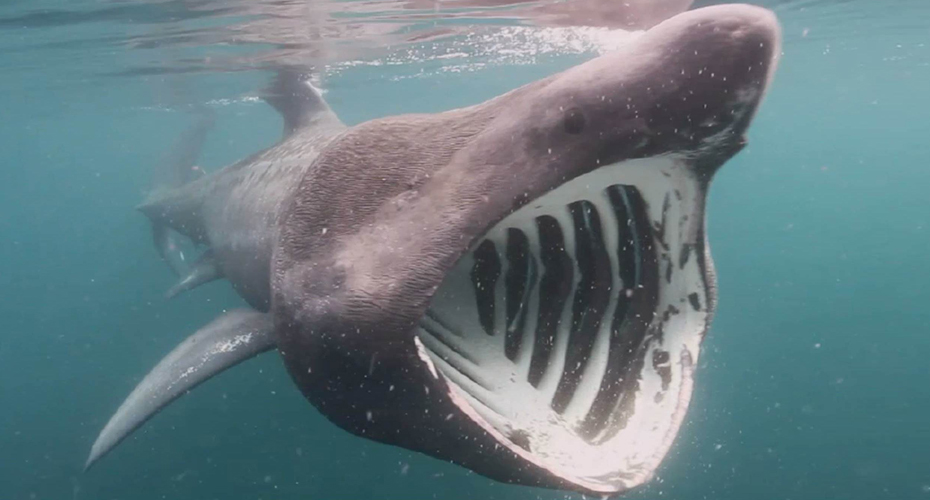
Image credit: Philip Doherty
Our research
Our marine-related research spans the humanities, physical, social and natural sciences. Marine research groups, containing over 350 researchers, can be found in all of our Faculties and Interdisciplinary Research Institutes.
Research is organised into nine major interdisciplinary themes which sees us working collaboratively with a wide range of partners locally, regionally and across the world’s oceans to shape positive changes in practice, policy and innovation. The research groups include:
How will I learn?
- Seminars
- Workshops
- Fieldwork
- Group discussion
- Independent study
Within modules there is considerable scope for you to direct your learning towards fields of particular interest, especially through your choice of research project. Research seminars will see you interacting with a wide range of our renowned academics and their research. This will mean that you will be exposed to many of the research topics being offered by staff for research projects.
Learning from experts
Postgraduate students join a community of world-leading marine vertebrate ecologists in the UK, with leading researchers working on sharks, marine turtles, seabirds and marine mammals in the UK and around the world.
Staff work with an extensive network of stakeholder organisations to codevelop research projects. Partners have recently included: Archelon, Beneath the Waves, British Antarctic Survey, British Divers Marinelife Rescue, Cetacean Research and Rescue Unit, Cornwall Wildlife Trust, Manta Trust, Marinelife, Natural England, Plymouth Marine Lab, ProDelphinus, Sea Mammal Research Unit, Sea Turtle Conservancy, Seychelles Island Foundation, Shark Trust, Society for the Protection of Turtles, Whale and Dolphin Conservation and Zoological Society of London.
Tutorial support
Each student is allocated a personal tutor who is available for advice and support throughout your studies. There is also a postgraduate tutor available to help with further guidance and advice.
Assessment
Taught modules will be assessed through formal oral presentation, written reports and discussions, during or upon the immediate completion of these modules.
Graduate School of Environment and Sustainability
You will become part of Exeter's Graduate School of Environment & Sustainability - a vibrant and supportive postgraduate community based here on our Penryn campus in Cornwall. The Graduate School brings together experts from across the spectrum of earth and life sciences, engineering, humanities, social sciences and business. You will interact with students from other MScs and have the opportunity to explore issues from a range of perspectives, benefiting from a truly interdisciplinary experience. All our programmes are designed with a focus on developing solutions to global challenges and creating a better future for our planet and its people.
Read more

Professor Brendan Godley
Programme Director and Professor of Conservation Science
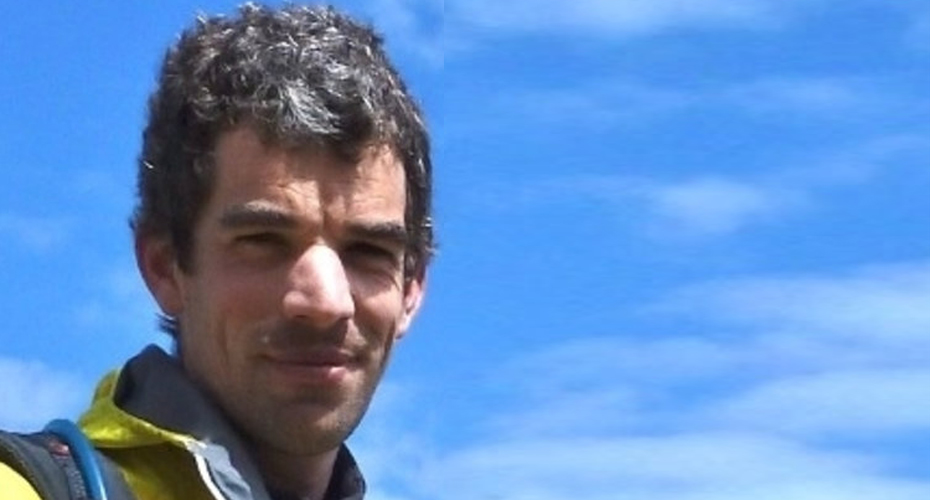
Dr Erik Postma
Senior Lecturer
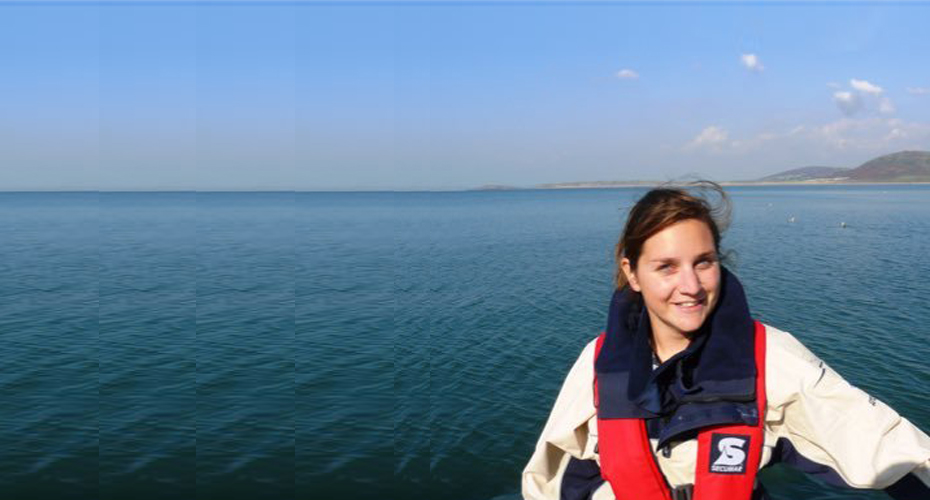
Dr Victoria Hobson
Lecturer
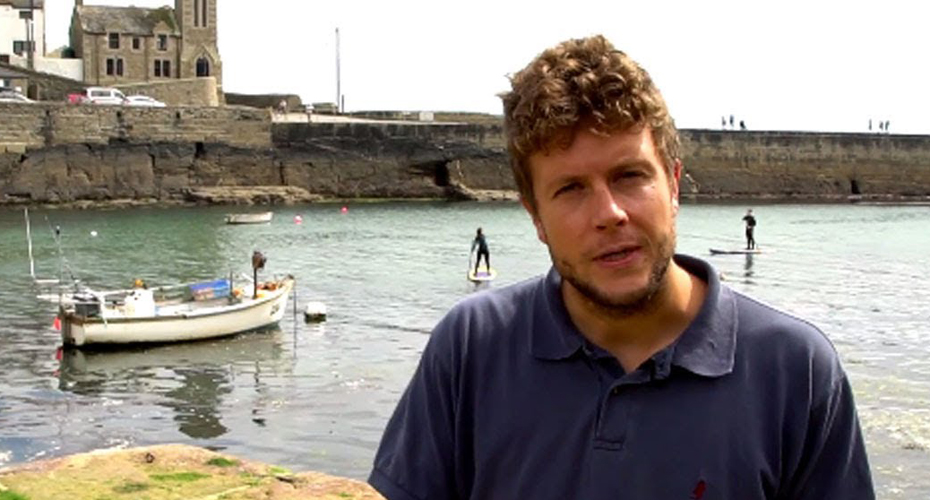
Dr Tomas Chaigneau
Senior Lecturer
Professor Brendan Godley
Programme Director and Professor of Conservation Science
Professor Godley is a conservation scientist with wide ranging interests in biodiversity conservation. His research largely focuses on the study of marine vertebrates (turtles, mammals, birds and sharks). In the last few years, Professor Godley has spent ever more efforts on interdisciplinary approaches to conservation research, including focusing on the issue of microplastics in our oceans.
Profile page
@BrendanGodley
Sea turtle tracking site
Dr Erik Postma
Senior Lecturer
Dr Postma studies the individual and population-level causes and consequences of variation in the traits related to the most important events in an individual's life, including birth, mate choice, reproduction and death. He uses individual-based, long-term data for a range of species, including rodents and humans.
Profile page
Dr Victoria Hobson
Lecturer
Dr Hobson’s research and professional career has been focused on marine ecology and conservation, concentrating on the how mobile marine species interact with their environments using animal attached technologies, particularly jellyfish, turtles and fish. Dr Hobson has also worked as a marine ecology consultant and is a committee member of the Cornwall Inshore Fisheries and Conservation Authority.
Profile page
@VJHobson
Dr Tomas Chaigneau
Senior Lecturer
Dr Chaigneau is an environmental social scientist who studies the relationship between the natural environment and peoples’ wellbeing. This involves understanding how individuals derive wellbeing from the coast but also how their actions can impact their adjacent environment. His research has primarily focused along the coast and has recently explored the links between coastal ecosystem services and wellbeing in East Africa. It has also investigated the social impact of Marine Protected Areas on communities and community support towards these interventions.
Profile page
@Tomas_Chaigneau
Fieldwork
We will undertake extensive fieldwork in waters of the UK, including Cornwall. You will become proficient in marine vertebrate identification, become a qualified marine mammal observer (MMO), become a trained marine mammal medic as well as becoming familiar with marine vertebrate necropsy protocols, baited remote underwater video and passive acoustic monitoring. Please note that some field courses may incur additional costs - see the Fees section for more information.
Careers
Employer-valued skills this course develops
This programme will provide you with a diversity of skills that will equip you for a range of sectors of work and further study of marine vertebrates. Skills will include:
- GIS and marine spatial planning
- Marine mammal rescue
- Post-mortem techniques
- Marine Mammal Observer qualification
- Use of passive acoustic monitoring
- Bycatch mitigation
- Animal tracking
Generic transferrable skills include:
- Scientific writing and poster preparation
- Grant writing
- Public speaking
- Short film production
- Professional use of social media.
Careers services
Our careers teams at the Career Zone can help guide you through a wealth of information to match your skills and interests to a career that will suit you. Our staff work with regional, national and international employers to develop new work placement, project and graduate opportunities.
Supporting your career
Being part of a large research-intensive department such as Ecology and Conservation means there are multiple extracurricular research seminars per week and frequent on-campus symposia and employability focussed seminars involving invited external stakeholders, offering extensive networking opportunities.
Recent graduates
Below are a few examples of initial jobs undertaken by graduates of our Biosciences postgraduate courses. This information has been taken from the Destinations of Leavers from Higher Education (DLHE) Survey 2016/17. Please note that, due to data protection, the job titles and organisations are listed independently and do not necessarily correspond.
Recent graduates are now working as:
- Conservation Project Officer
- Ecologist
- Environmental Consultant
- GIS and Social Technician
- Graduate Research Assistant
- King Cobra Telemetry Project Intern
- Marine and Environmental Consultant
- Programme Assistant, Conservation Science and Design
- Research Leader
- Science Researcher
Recent graduates are now working for:
- Biosphere Magazine
- Blue Ventures
- Devon Wildlife Trust
- Greengage Environmental LLP
- Institute of Zoology
- IUCN John Wenman Ecological Consultancy Madagascar Research and Conservation Institute (MRCI)
- Oxford Scientific Films
- RSPB
- Seamarc Environmental Consultancy and Engineering
- Thomson Ecology
Further study
Further study is a popular choice for a number of students following graduation from our Biosciences Masters courses. The MSc Marine Vertebrate Ecology course will equip you with the necessary skills to pursue further study once completing the course.
Read more
The biggest highlight of studying at Exeter was that it was a key milestone in my career to broaden my view on biodiversity conservation and ecotourism. The lecturers were very dynamic and the several field trips allowed students to gain significant experience. The University support for overseas students (e.g, support in English for essays, etc) was also very useful.
I enjoyed the dynamism of the course. It was a very intensive year with a lot of learning.
After graduating from Exeter, I came back to Cabo Verde and worked at the National Directorate of Environment. My role was to follow up the management plans of protected areas and species conservation, I was also the Global Environment Facility (GEF) Political Focal Point and Ramsar Convention Focal Point.
I then left the government and founded an NGO called Lantuna. I have been implementing biodiversity conservation projects in Cabo Verde and I also do consultancy services. At the present, I am coordinating the Cabo Verde seabirds project for BirdLife International.
Read more from Ana
Ana
Centre for Ecology and Conservation graduate






